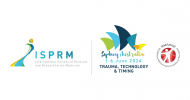Pre-reading materials
Please click here to access the pre-reading materials.
Session outline
This is an attempt to highlight recon & rehab aspects of PNI, using lumbar plexus palsy (LPP) as an example, focusing on early diagnosis & management, timely investigations, early rehab team involvement, early & late (salvage) surgery where appropriate.
We then look at therapy approaches to these LMN lesions, including those that come on as complications over the background of pre-existing stroke, focusing on the added challenges of diagnosis, prognosis & management here.
Finally, we will explore how we can use some of the understandings from peripheral nerve pathophysiology to our advantage – to help the patients with higher lesions in the nervous system (stroke, Spinal cord injury (SCI), Cauda equina syndrome (CES), preganglionic brachial plexus injury (pBPI); we explore the possibility of expanding the sensate areas in these disabling conditions, through peripheral interventions.
Learning outcomes
- Early recognition of the peripheral nerve injuries – LPP in particular, appreciating that many of these are cases of compartment syndromes resulting from Psoas / Iliacus bleeds – thus time-sensitive emergency cases requiring early, appropriate management.
- Recognising & managing these in the presence of a stroke, as a particular added challenge.
- Early, appropriate investigations & treatment of retroperitoneal bleeds (Psoas, Iliacus) & associated nerve palsies
- Timely rehab referrals; appropriate rehab interventions
- Timely & appropriate referrals for neurophysiology and salvage surgery
- Different therapy approaches for CNS & PNS
- Different patterns of sensate recovery in CNS & PNS lesions
- How we can apply this knowledge to develop novel interventions for reducing disability in CNS lesions
Target audience
We expect this workshop to be educative & entertaining; we expect it to benefit audience from multiple backgrounds.
- Allied health
- Medical practitioners – GPs & multiple medical & surgical specialties
- Students
- Trainees – Rehab medicine as well as many medical & surgical specialties
- Nursing staff
- General public – Patients & family



